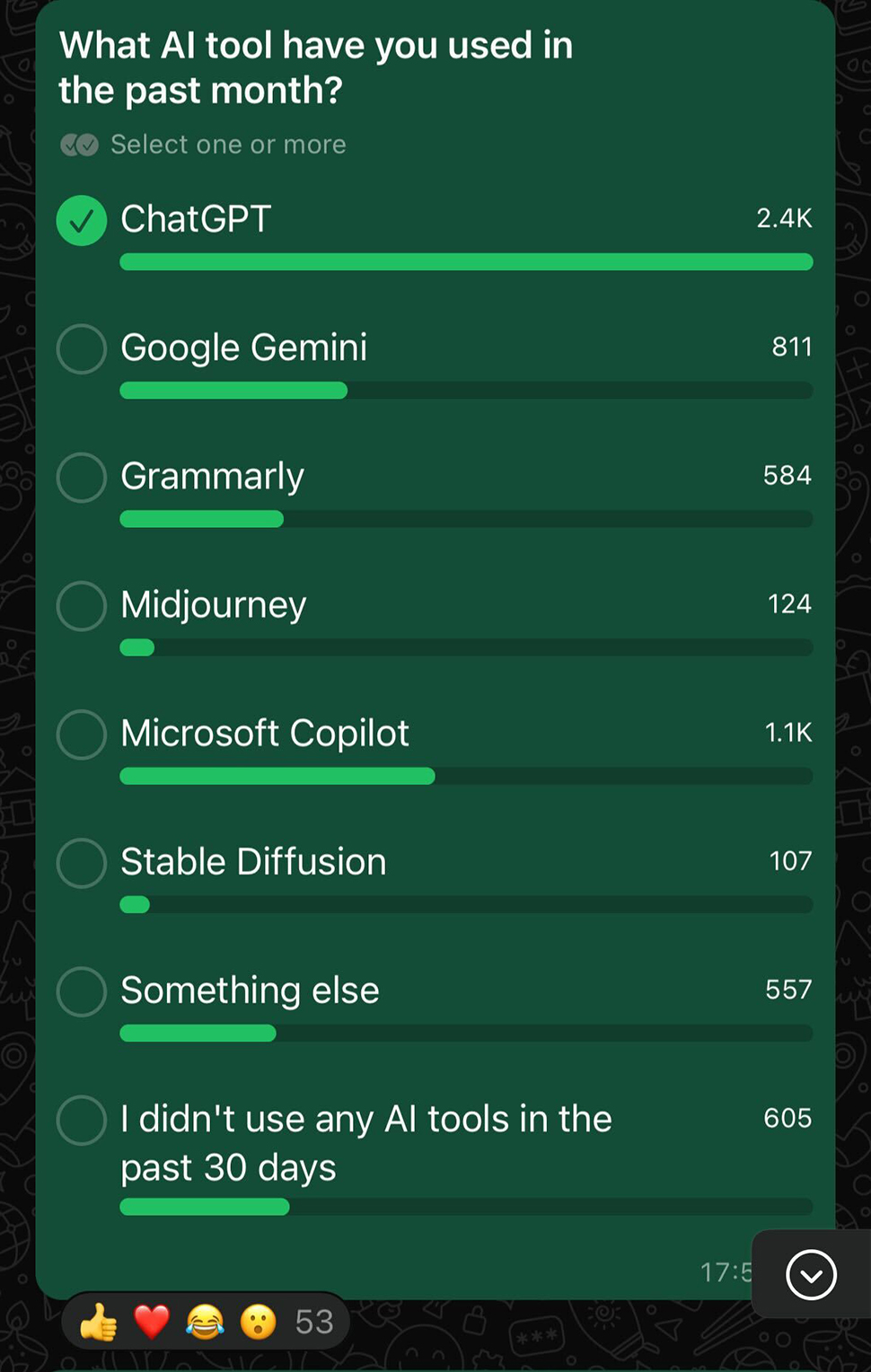
AI continues to weave its way into our everyday lives, offering a diverse array of solutions designed to enhance productivity, creativity, and communication.
To find out which tools have been most commonly used in the past month, we recently conducted a poll on the TechRadar WhatsApp channel.
We received over 6,600 responses and the results present an intriguing insight into the current preferences and behaviors of AI users.
Grammarly the surprise hit
Unsurprisingly, ChatGPT emerged as the most popular AI tool among respondents, with a staggering 2,400 having used it in the past 30 days. OpenAI’s versatile language model recently received a major update (ChatGPT 4o) which improves its capabilities significantly and we're really still at the start of understanding its possibilities.
Next up, 1,100 respondents said they had used Microsoft Copilot. Its strong showing in the survey can be attributed to the tool being integrated into Windows 11 and Microsoft Office applications. The addition of a Copilot key on new AI PCs will only have helped here.
Google Gemini was used by 811 respondents, which is both a respectable and disappointing result for Google whose AI endeavors are failing to be adopted to the same level as OpenAI’s.
Grammarly proved to be a surprise hit in the poll with the staple for enhancing writing quality across various platforms seeing 584 monthly users.
Interestingly, Midjourney and Stable Diffusion only garnered 124 and 107 users respectively. There are a number of tools which can generate DALL-E 3 powered artwork, including Copilot and the paid version of ChatGPT, so that will explain some of the reasons those numbers are lower than might have been expected.
A notable number of respondents, 557 in total, reported using other AI tools not explicitly listed in the survey, which hints at the expansive and evolving landscape of AI solutions available today. On the flip side, 605 participants said they hadn’t used any AI tools in the past 30 days, suggesting there remains a good portion of the population yet to integrate AI into their daily routines.
Just to add a final note about our findings. WhatApp’s polls allow respondents to give more than one answer, and also provide contradictory answers (e.g. “Something else" and “I didn't use any AI tools”). We assume that the latter is a statistically insignificant occurrence, however.








